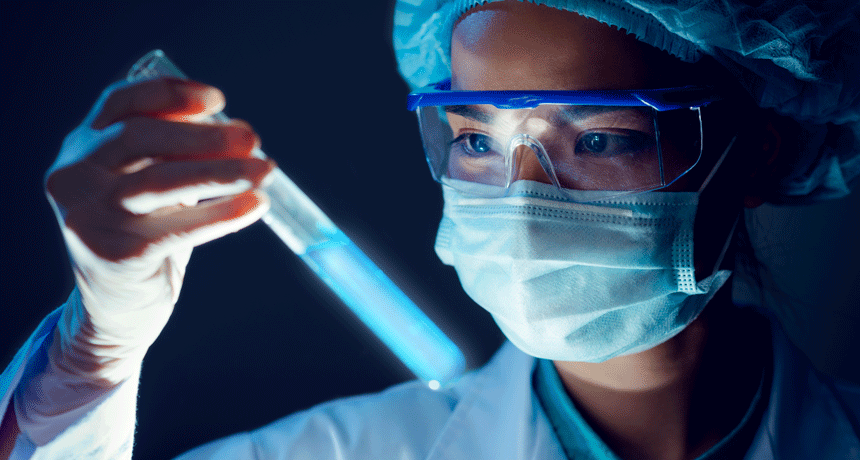HS-PS1-5
Apply scientific principles and evidence to provide an explanation about the effects of changing the temperature or concentration of the reacting particles on the rate at which a reaction occurs.
-
 Chemistry
ChemistryScientists Say: Catalyst
Sometimes a chemical reaction can take a while. If speed is needed, a catalyst can help.
-
 Chemistry
ChemistryTrees can make summer ozone levels much worse
The greenery can release chemicals into the air that react with combustion pollutants to make ozone. And trees release more of those chemicals where it gets really hot, a new study finds.
-
 Climate
ClimateAncient Arctic ‘gas’ melt triggered enormous seafloor explosions
Methane explosions 12,000 years ago left huge craters in bedrock on the Arctic seafloor. Scientists worry more could be on the way today as Earth’s ice sheets melt.
By Beth Geiger -
 Earth
EarthHow Earth got its moon
How did our moon form? Scientists are still debating the answer. It may be the result of some one big impact with Earth — or perhaps many small ones.
-
 Chemistry
ChemistryHere’s how hot water might freeze faster than cold
There’s a new explanation for how hot water freezes faster than cold water. But not everyone agrees it’s right, or that the effect can happen at all.
-
 Materials Science
Materials ScienceSunlight + gold = steaming water (no boiling needed)
Nano-gold is the new black, at least when it comes to absorbing heat. When tiny gold particles get together, they become energy super-absorbers — turning them black.
-
 Earth
EarthCarbon dioxide could explain how geysers spout
A new study overturns 150 years of thinking about Yellowstone’s geysers. Carbon dioxide, not just hot water, may be driving those spectacular eruptions.
-
 Materials Science
Materials ScienceCool Jobs: Big future for super small science
Scientists using nanotechnology grow super-small but very useful tubes with walls no more than a few carbon atoms thick. Find out why as we meet three scientists behind this huge new movement in nanoscience.
-
 Physics
PhysicsNews Brief: Brrrrr — that’s really cold!
These atoms approached — and got oh so very close — to absolute zero.
By Andrew Grant -

Cookie Science 13: The deal with gluten
To find out how to improve my gluten-free cookies, I learned a lot about what gluten does, and what other baking ingredients might take its place.
-
 Physics
PhysicsVery-sub-zero water
Using lasers, scientists measured the temperature of water droplets that remained liquid even when super-cold.
-
 Physics
PhysicsWorld’s coolest ‘clock’ is also crazy-accurate
This is the time to beat — the world’s most accurate atomic clock ever. At its heart is a ‘fountain’ of cesium atoms chilled nearly to absolute zero!
By Janet Raloff